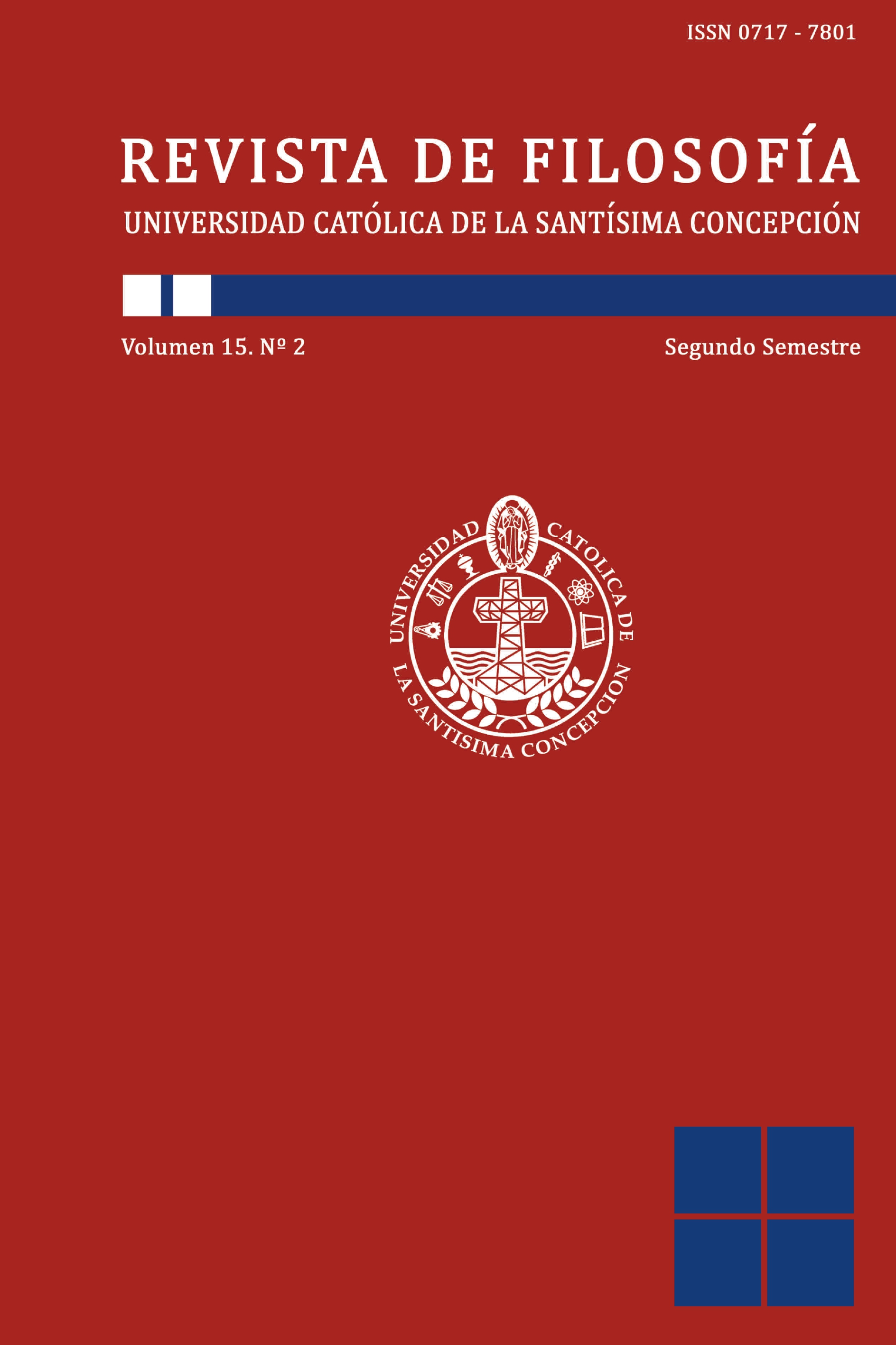The individual against history. Kierkegaard and the search of a phenomenology of existence. An approach to the problem
Main Article Content
Abstract
The paper presents an approach to the possibility of tracing the thought of Søren Kierkegaard seeking a phenomenology that, by its determinants, might denominate phenomenology of existence. First, it is suggested delimitation against Hegel's dialectic based on historical knowledge. Second, tracked the negative aspects, from Kierkegaard, this approach brings to the individual, as responsible for himself. Third, some keys to a new dialectic are delimited whose center is the individual, that is, a dialectic that emphasizes the subjective spirit more than the objective spirit, and assumes the impossibility of knowing reality in opposition to historical knowledge. In this sense of impossibility, in the last moments of the writing, the function of the negative thing is traced, not in relation with the formation of one to know conceptual, but in the constitution of a dialectics of existence, where they are essential, for his ambiguity, negative phenomena such as boredom, anxiety, despair, and melancholy.
Article Details
Section

This work is licensed under a Creative Commons Attribution-NonCommercial 4.0 International License.
The Revista de Filosofía UCSC is an open access journal and does not charge for publication. In addition, it regulates its Copyright and access policy according to the Creative Commons Attribution-NonCommercial 4.0 International Public License (CC BY-NC 4.0), therefore sharing (reproducing and distributing the material in any medium or format) and adaptation (modifying, transforming, and creating from the material) is allowed as long as proper credit is given and the citation is included with the corresponding data. Moreover, it is not allowed to use the material for commercial purposes.
How to Cite
References
Anders, G. (2008): “Heidegger, esteta de la inacción”, en Sobre Heidegger. Cinco voces
judías, Buenos Aires: Manantial.
Arendt, H. (2002): La vida del espíritu, Buenos Aires: Paidós.
Bense, M. (1969): Kierkegaard y Hegel. Una investigación de principios. México:
Universidad Autónoma de México.
Binetti, M. J. (2008): “Hacia un nuevo Kierkegaard: la reconsideración históricoespeculativa de J. Stewart”, La mirada Kierkegaardiana, 0, pp. 1-15.
Dilthey, W. (1944): Hegel y el idealismo, México D. F.: Fondo de Cultura Económica.
Dip, P. C. (2009): “Inmediatez y conciencia del yo en Kierkegaard”, en Guerrero, L.
(coord.), 2009, Søren Kierkegaard. Una reflexión sobre la existencia humana: México D.
F.: Universidad Iberoamericana.
___________ (2010a): “Subjetividad y praxis. La recepción fenomenológica de Kierkegaard
en la obra de Michel Henry”, en Valls, A., da Silva, J. (eds.), Kierkegaard no nosso tempo,
Sao Leopoldo: Editora Nova Harmonia, pp. 279-289.
___________(2010b): “Sobre el escepticismo: Hegel y Kierkegaard”, Cuadernos UFS
Filosofía, 7, pp. 65-72.
___________(2006): La fenomenología del espíritu de Hegel. Perspectiva latinoamericana.
Tomo II, Buenos Aires: Biblos.
Duque, F. (2007): “Hegel. Alabanza del saber, menosprecio del individuo”, Eikasia.
Revista de Filosofía, 15, pp.4-17.
Franco Barrio, F. (1996): Kierkegaard frente al hegelianismo, Valladolid: Universidad
de Valladolid.
González, D. (2010): “The Meaning of Negative Phenomena in Kierkegaard’s Theory of
Subjectivity”, Kierkegaard as Phenomenologist. An Experiment, Evanston,
Illinois: Northwestern University Press.
Hartmann, N. (2007): El problema del ser espiritual: investigaciones para una
fundamentación de la filosofía de la historia y de las ciencias del espíritu, Buenos
Aires: Leviatán.
Hegel, G. W. F. (2002): Fenomenología del espíritu, México D. F.: Fondo de Cultura
Económica.
Heidegger, M. (2010): Caminos de bosque, Madrid: Alianza Editorial.
Heller, Á. (1984). Crítica de la ilustración, Barcelona: Península.
Hyppolite, J. (1974): Génesis y estructura de la Fenomenología del espíritu de Hegel,
Barcelona: Península.
Kierkegaard, S. (1962): Die Tagebücher. Band I, Düsseldorf/Köln: Eugen Diederichs
Verlag.
__________________ (1965): La repetición, Madrid: Guadarrama
____________ (1979): El concepto de la angustia, Madrid: Espasa-Calpe.
____________ (1984): La enfermedad mortal, Madrid: Sarpe,
____________ (1985): Mi punto de vista, Madrid: Sarpe.
____________ (1997): Migajas filosóficas. O un poco de filosofía, Madrid: Trotta.
____________ (2006): O lo uno O lo otro I, Madrid: Trotta.
____________ (2010): Post Scriptum no científico y definitivo a Migajas filosóficas,
Salamanca: Sígueme.:
Kojéve, A. (2013): Introducción a la lectura de Hegel, Madrid: Trotta.
Llevadot, L. (2008): “Kierkegaard y la cuestión de la metafísica: el lugar ético en el
pensamiento existencia”, Logos: Anales del Seminario de Metafísica, vol. 41, pp. 87-
Schulz. W. (1961): El Dios de la metafísica moderna, México, D.F.: Fondo de Cultura
Económica.
Stewart, J. (2013): “Quellensforschung y la relación de Kierkegaard con Hegel: algunas
consideraciones metodológicas”, Ironía y destino. La filosofía secreta de Søren
Kierkegaard: Barcelona: Herder.
Taubes, J. (2010): Escatología occidental, Buenos Aires: Miño y Dávila.
Valls Plana, R. (1979): Del yo al nosotros, Barcelona: Laia.




